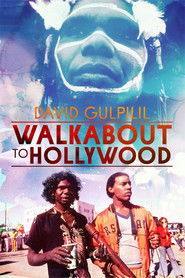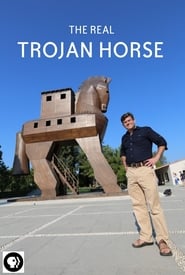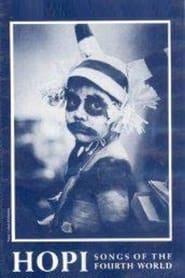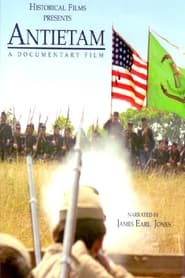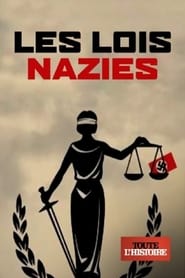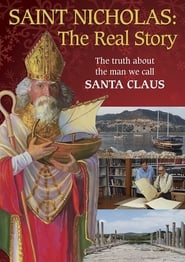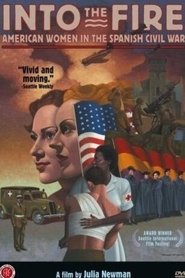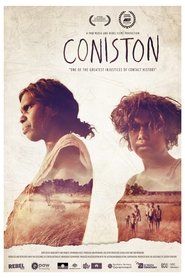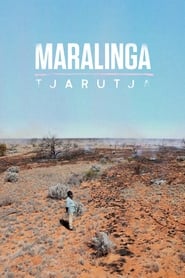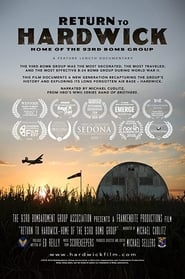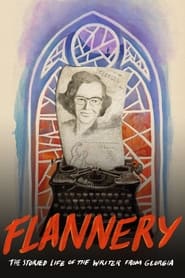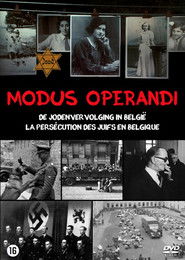Top Rated History Movies on Kanopy - Page 46
-
Walkabout to Hollywood
1980
Produced and directed this documentary for BBC in the 1980’s, about David Gulpilil, acclaimed Australian Aboriginal actor, dancer and musician. The film shows how Gulpilil is always working to bridge the gap between the tribal Aboriginal and Western worlds. He divides his time between a traditional tribal lifestyle and his artistic work, which has included major film roles, collaboration with contemporary dance and music groups and teaching Aboriginal dance and culture. Bill and David travel to Hollywood where David was the most popular Australian in the world at that time, with FOUR films playing in America – WALKABOUT, STORM BOY, THE LAST WAVE and MAD DOG MORGAN. After relating to both the black and native American cultures and filming a quick scene for a big Hollywood picture, he pines to head back through the Outback to his beloved Arnhem Land. Edited by Simon Dibbs and shot by Ray Henman. -
Secrets of the Dead: The Real Trojan Horse
2015
The Trojan Horse… It was the ultimate sneak attack, bringing a city that would withstood nine years of battle to its knees. But was it simply a work of fiction? Or did the Greeks really trick the Trojans into defeat with a giant wooden horse that concealed enough soldiers to reduce the powerful city to rubble? Are the city of Troy and the familiar story of the Trojan War as recounted in Homer’s ancient Greek epic poem, the Iliad, fact or fiction? -
Black Feminist
2019
Black Feminist
2019
Black Feminist is a feature length documentary film surrounding the double edged sword of racial and gender oppression that black women face in America. This documentary is told through interviews from scholars, lecturers, writers, business owners, veterans, comedians and authors. In addition to information interviews, this documentary is narrated by an animated character LaToya Johnson, played by Nadirah Lugg. -
Hopi: Songs of the Fourth World
1983
A compelling study of the Hopi that captures their deep spirituality and reveals their integration of art and daily life. Amidst beautiful images of Hopi land and life, a variety of Hopi — a farmer, a religious elder, a grandmother, a painter, a potter, and a weaver — speak about the preservation of the Hopi way. Their philosophy of living in balance and harmony with nature is a model to the Western world of an environmental ethic in action. -
King Philip's War
2000
King Philip's War
2000
Taking place between June 1675 and August 1676, between the colonists of the Massachusetts Bay Colonies of New England and the Native American Wampanoag Tribe, this was considered the bloodiest war per capita in this country's history. Native Americans and historians of the period believe this war was one of the most significant, seminal events in American history. -
Gettysburg: Final Measure of Devotion
2013
The film, along with the incredible action and spectacle of the 150th reenactment, features over 60 breath taking colorized images of the leading figures of the battle by Denmark-based artist, Mads Madsen. -
Antietam: A Documentary Film
2000
Re-enactments illustrate the details of the three principle stages of the battle of Antietam, fought November 17th, 1862. Also features animated tactical maps, dramatic readings of personal papers, and expert narrative commentary. -
Nazi Law: Legally Blind
2016
Sobering look at how Hitler and the Nazi party manipulated laws to further their hate-filled agenda. People who were considered physically or racially inferior or disloyal to the state were deprived of their rights and often their lives under these Nazi laws. When Germany was ultimately defeated, Nazi leaders were charged with crimes against humanity in the Nuremberg Trials, in an attempt by the world community to restore the rule of law. -
Saint Nicholas: The Real Story
2015
This 60-minute film will take an in depth look at the story of St. Nicholas through historical fact, archaeological evidence, faith, artistic expression and contemporary celebration. -
The Man Card
2020
The Man Card
2020
For years, right-wing politicians and pundits have repeatedly criticized the left for playing “the race card” and “the woman card.” This new film turns the tables and takes dead aim at the right’s own longstanding – but rarely discussed – deployment of white-male identity politics in American presidential elections. Ranging from Richard Nixon’s tough-talking, law-and-order campaign in 1968 to Donald Trump’s hyper-macho revival of the same fear-based appeals in 2020, "The Man Card" shows how the right has mobilized dominant ideas about manhood and enacted a deliberate strategy to frame Democrats and liberals as soft, brand the Republican Party as the party of “real men,” and position conservatives as defenders of white male power and authority in the face of transformative demographic change and ongoing struggles for racial, gender, and sexual equality. -
Into the Fire: American Women in the Spanish Civil War
2002
In 1936, a right-wing military coup tried to overthrow the new, legally elected, democratic government of Spain. Hitler and Mussolini quickly joined the fight on the side of the fascist military. In response, and against the wishes of the U.S. government, about 80 American women joined over 2700 of their countrymen to volunteer for the Republican side in the Spanish Civil War. This film is composed of interviews with and excerpts from the letters, journals, and published writings of some of these women, as well as of supporters and sympathizers including Martha Gellhorn, Eleanor Roosevelt, Virginia Cowles, Josephine Herbst, and Dorothy Parker. -
Coniston
2012
Coniston
2012
In 1928, following the murder of a white dingo trapper, central Australia would witness the last known massacre of its Indigenous people. With over one hundred killed during a series of punitive expeditions, those who survived fled far and wide from the massacre sites. Denied a voice at the official inquiry and dislocated from their lands, the survivors passed down the story of this bloody episode to their children and grandchildren. -
Hagia Sophia
2014
Hagia Sophia
2014
Considered the finest example of Byzantine architecture in the world, Hagia Sophia was constructed on a scale unprecedented in human history. Built in the amazingly short time of five years, it bears witness to an amazing scientific knowledge and a rich cultural heritage from the past. -
The Trial of Socrates
1971
First of the Man And the State series, dramatizing the character of Socrates in the context of his 339 B.C. trial, posing questions about if the state has the right to silence individuals. -
Under Darkness
2019
Under Darkness
2019
In World War II Poland, a young Jewish woman joins the Soviet resistance, and realizes that through photography, she can remember the past while documenting for the future. -
Maralinga Tjarutja
2020
Maralinga Tjarutja
2020
The Maralinga people survive aggressive colonisation, including dispossession to enable atomic testing, and through their tenacious spirit and cultural strength fight to retain their country. -
Return to Hardwick
2019
Return to Hardwick
2019
Sons, daughters and grandchildren of the greatest generation travel to England to uncover the history of a disappearing World War II air base. -
What's The Big Idea, Ben Franklin?
1976
A new idea always in his mind, Ben Franklin's joy of living, his humor and gentleness will capture children's attention and spark their interest in American history. -
Flannery
2019
Flannery
2019
Explore the life of Flannery O’Connor whose provocative fiction was unlike anything published before. Featuring never-before-seen archival footage, newly discovered journals, and interviews with Mary Karr, Tommy Lee Jones, Hilton Als, and more. -
Modus Operandi
2008
Modus Operandi
2008
Between 1942 and 1944 some 24,916 Jews were deported from Belgium to Auschwitz. The roundups and deportations were organized and carried out by the Nazis with the - not always conscious - cooperation of Belgian authorities. The attitude of the authorities here varied from outright resistance to voluntary or unwitting collaboration.
 Netflix
Netflix
 Amazon Prime Video
Amazon Prime Video
 Apple iTunes
Apple iTunes
 Apple TV Plus
Apple TV Plus
 Disney Plus
Disney Plus
 Google Play Movies
Google Play Movies
 Paramount Plus
Paramount Plus
 Hulu
Hulu
 HBO Max
HBO Max
 YouTube
YouTube
 fuboTV
fuboTV
 Peacock
Peacock
 Peacock Premium
Peacock Premium
 Amazon Video
Amazon Video
 The Roku Channel
The Roku Channel
 AMC+
AMC+
 Kocowa
Kocowa
 Hoopla
Hoopla
 The CW
The CW
 Vudu
Vudu
 Starz
Starz
 Showtime
Showtime
 PBS
PBS
 Pantaflix
Pantaflix
 FXNow
FXNow
 Tubi TV
Tubi TV
 Kanopy
Kanopy
 Comedy Central
Comedy Central
 Crunchyroll
Crunchyroll
 Microsoft Store
Microsoft Store
 Redbox
Redbox
 Sun Nxt
Sun Nxt
 ABC
ABC
 DIRECTV
DIRECTV
 Crackle
Crackle
 Fandor
Fandor
 Plex
Plex
